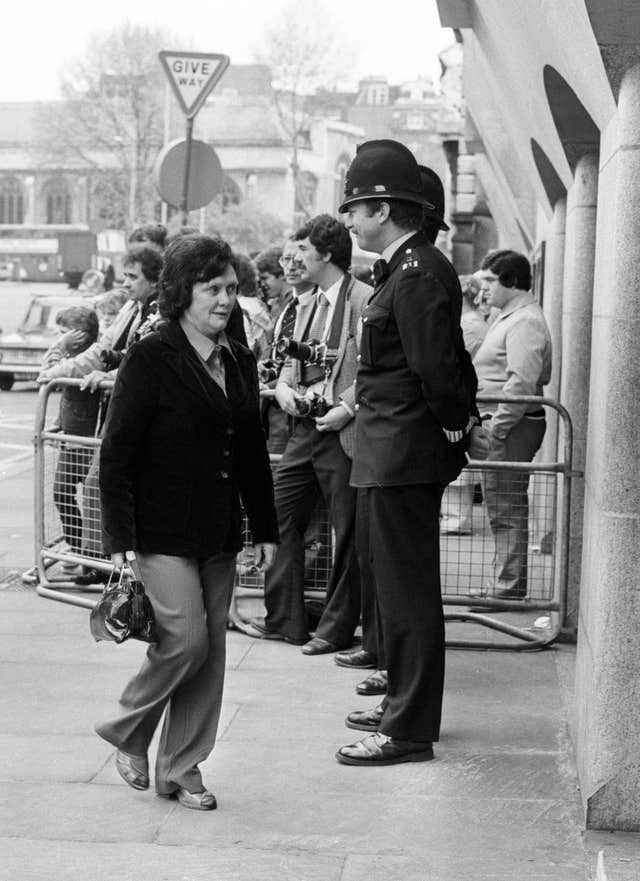
Peter Sutcliffe convinced psychiatrists and in turn the country’s most senior prosecuting lawyers that he was not guilty of murder because he thought he was on a mission from God.
But judge Mr Justice Boreham was not convinced and ordered the shocking case be put before a jury, which went on to convict the Yorkshire Ripper of the most serious charges.
The Old Bailey in May 1981 was the scene of the unusual legal wrangling, before the jury was sworn in.

The attorney-general Sir Michael Havers was leading the prosecution and on the first day of the proceedings he said the Crown accepted the expert advice of doctors that Sutcliffe was a paranoid schizophrenic.
The serial killer had told psychiatrists he heard voices telling him to kill, and that it was God’s will.
For that reason, the prosecution said they would accept his not guilty pleas to murder, but admission of manslaughter on the grounds of diminished responsibility.
But the judge disagreed, explaining that those medics had formed their views on the basis of what Sutcliffe had told them, and it differed from what he had told police after he was arrested and interviewed.
The judge was sure it was a matter for the jury to decide, and after some days adjournment, the attorney-general had to then prove the case that Sutcliffe did indeed know precisely what he was doing when he attacked and mutilated his victims.
It was during the trial that Sir Michael made infamous remarks about Sutcliffe’s victims, saying: “Some were prostitutes, but perhaps the saddest part of the case is that some were not.
“The last six attacks were on totally respectable women.”
Those comments sparked protests outside court.
After a 15-day trial the jury took almost six hours to reach their verdicts.
Mr Justice Boreham told the killer: “Peter William Sutcliffe, the jury have found you guilty of 13 charges of murder and, if I may say so, murder of a very cowardly quality.
“It is difficult to find words that are adequate in my judgment to describe the brutality and the gravity of these offences and I say at once I am not going to pause to seek those words.
“I am prepared to let the catalogue of your crimes speak for itself.”
He sentenced him to life with a minimum term of 30 years, and expressed the hope that Sutcliffe would never be released.


Comments: Our rules
We want our comments to be a lively and valuable part of our community - a place where readers can debate and engage with the most important local issues. The ability to comment on our stories is a privilege, not a right, however, and that privilege may be withdrawn if it is abused or misused.
Please report any comments that break our rules.
Read the rules here